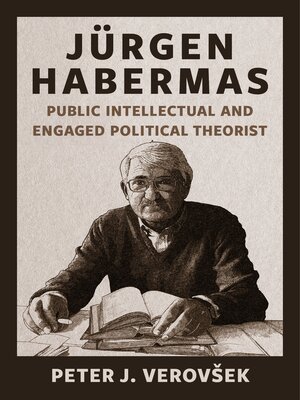Jürgen Habermas
ebook ∣ Public Intellectual and Engaged Critical Theorist · New Directions in Critical Theory
By Peter J. Verovšek

Sign up to save your library
With an OverDrive account, you can save your favorite libraries for at-a-glance information about availability. Find out more about OverDrive accounts.
Find this title in Libby, the library reading app by OverDrive.



Search for a digital library with this title
Title found at these libraries:
| Library Name | Distance |
|---|---|
| Loading... |
Jürgen Habermas is Germany's most important postwar philosopher, the leading figure of the Frankfurt School in this period. He is best known for the concept of the public sphere, which forms the basis of his communicative understanding of democratic politics. Habermas has not only theorized the public sphere—he has also taken part in it through frequent commentary on current social, political, and cultural issues. Yet since Habermas's extensive public-facing writings have been overlooked, his philosophy has often been criticized as apolitical.
This book transforms our understanding of Habermas by focusing on his work as a public intellectual, showing how he has shaped debates far beyond the ivory tower. Peter J. Verovšek argues that while Habermas maintains a strict separation between his academic and his public-facing writings, he has also ensured that these two aspects of his work are part of a consistent whole. The book highlights the development of Habermas's views over time and the changing nature of his public interventions. His early political writings focused on questions tied to the particular situation of postwar West Germany, but since 1989 he has increasingly turned his attention to the future of Europe and global politics more broadly. Verovšek sheds light on the interrelationship between Habermas's participation in the public sphere and his theoretical work, demonstrating that his political engagement is crucial to understanding his philosophy. In a moment when public debate is under threat, this book offers timely new insight into Habermas's lifelong project of defending the public sphere—both in theory and in practice.







